On 12 October 2017, New Zealand marks 100 years since its participation in the World War One Battle of Passchendaele, a disaster that still ranks as the “darkest day” for the South Pacific country. Events on 11 and 12 October to mark the centenary include New Zealand’s National Commemorative Service at Tyne Cot Cemetery in Zonnebeke and a cultural event featuring a ceremonial Māori waka at Ieper’s Menin Gate.
A century ago at Passchendaele, New Zealand suffered the greatest loss of life in a single day in its modern history – with some 960 men dead or mortally wounded in a few short hours.
New Zealand’s population was only 1 million people at the time of the war. Some 100,000 New Zealanders – 10% of the total population and half of the working age male population – voyaged to the other side of the globe to fight. Of these, around 60% would become casualties, and nearly 20% would never return home. For New Zealand, this experience had a profound effect on our young country, and shaped the commitment to peace and security that we uphold to this day.
One hundred years on, New Zealanders will again voyage to Belgium, to remember those who fought and to celebrate our modern friendship with Belgium and with Europe.
A week before 12 October, a ceremony was held at Nine Elms Cemetery at Poperinge on Wednesday, 4 October 2017.
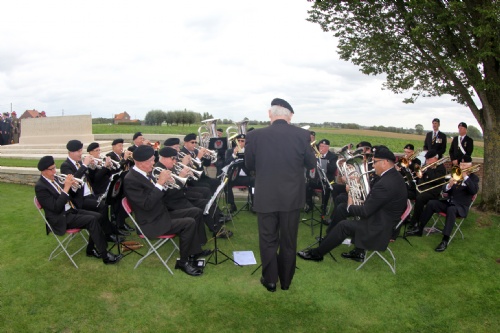
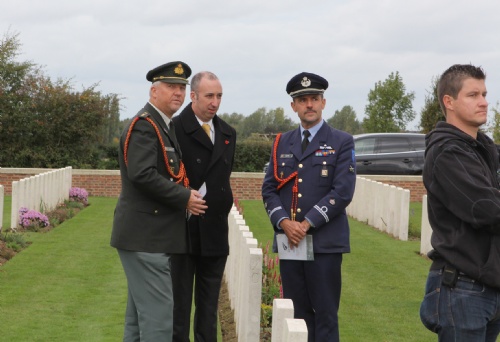
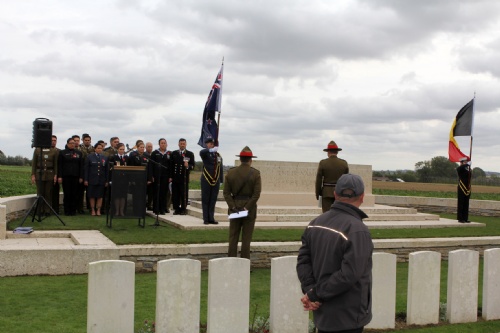
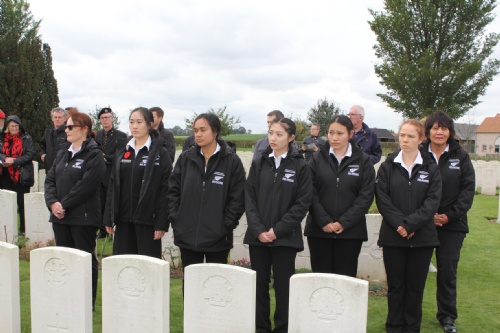
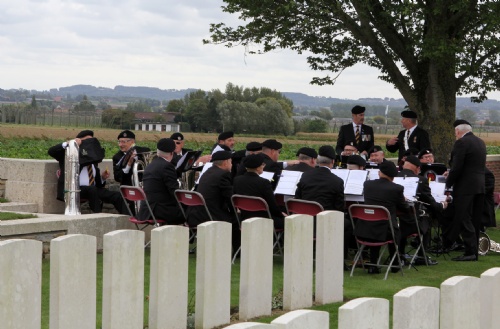
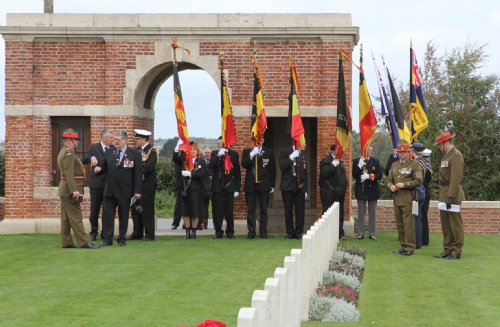
Arrival of the standard bearers and the VIP's.
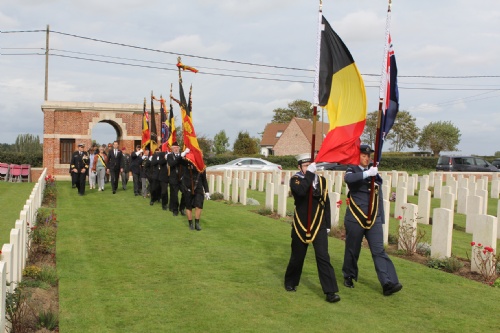
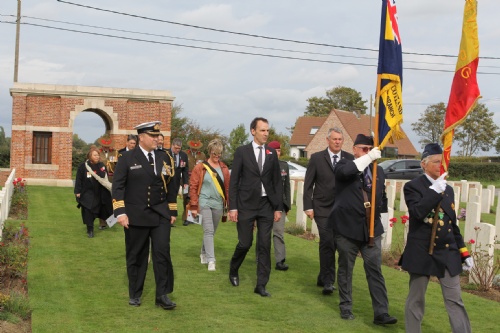
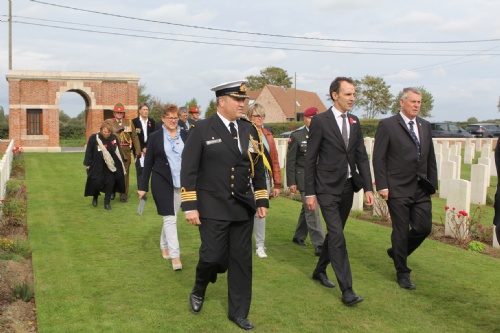
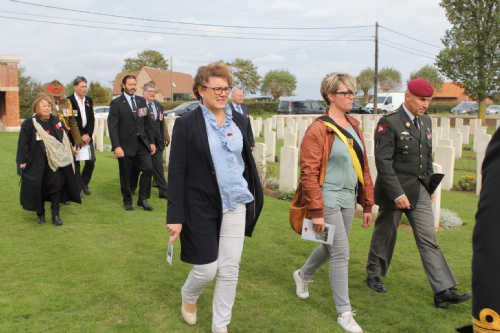
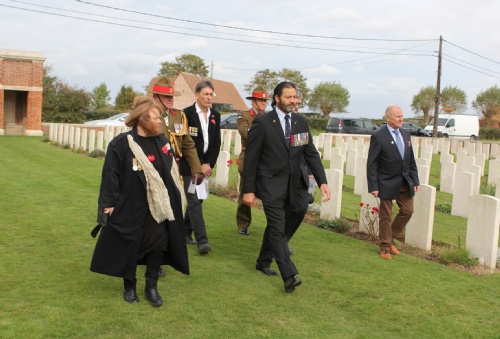
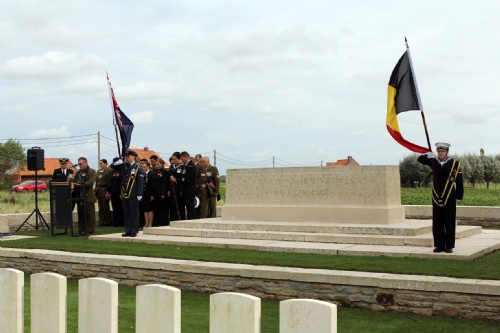
Address by the New Zealand Ambassador.
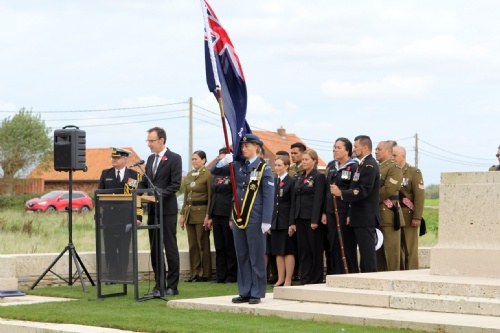
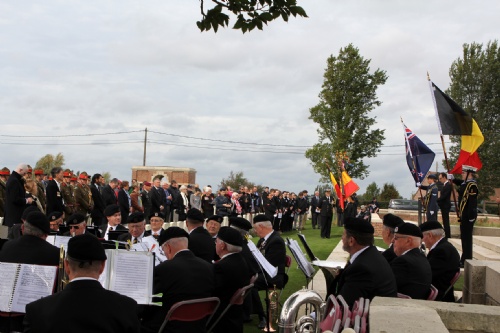
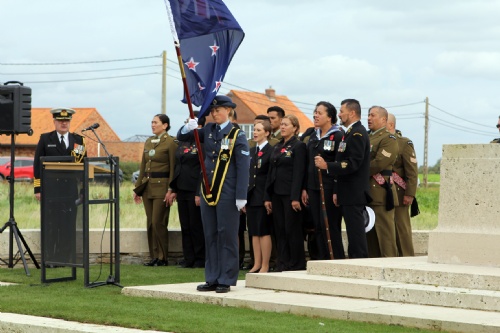
By olderman Loes Vandromme on behalf of the city of Poperinge.
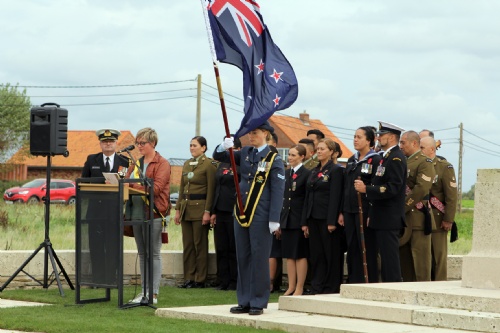
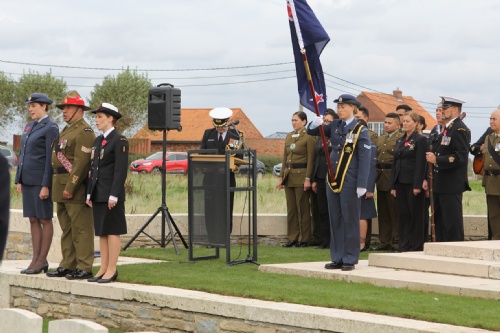
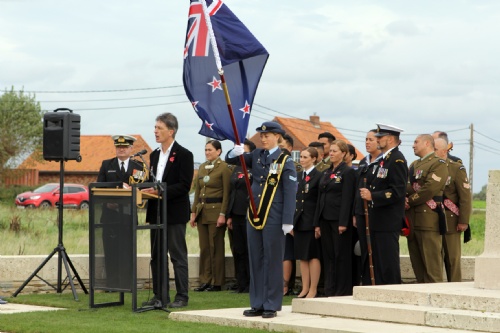
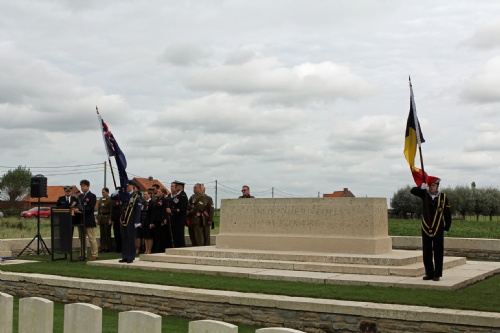
Tracey McRory played her violin at the grave of Dave Gallagher, former captain of the Old Blacks.
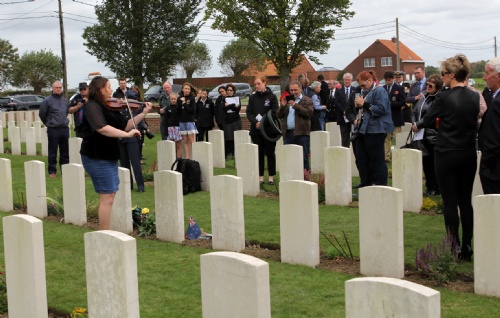
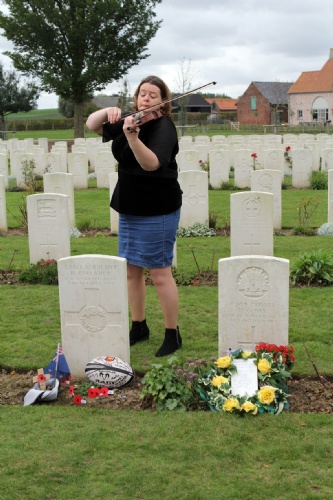
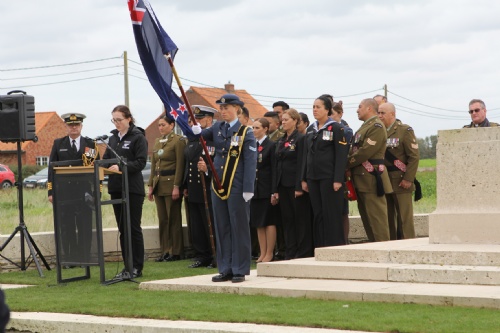
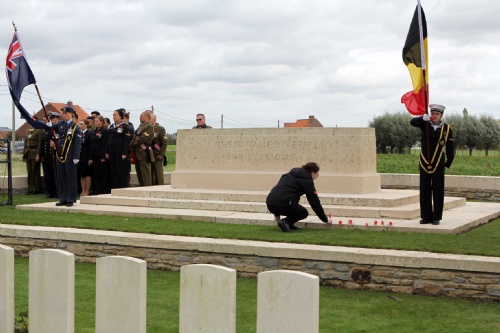
Laying of the wreaths.
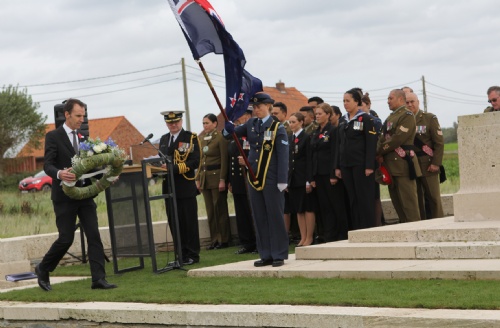
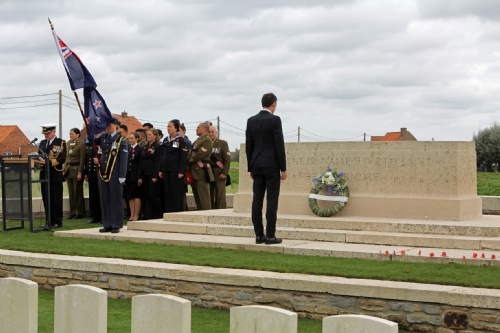
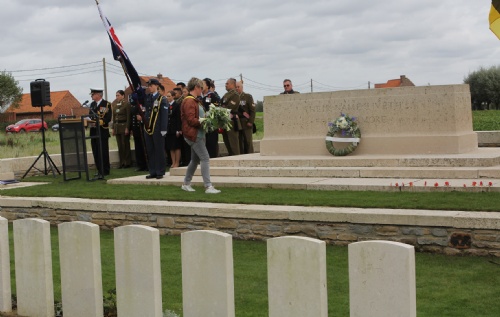
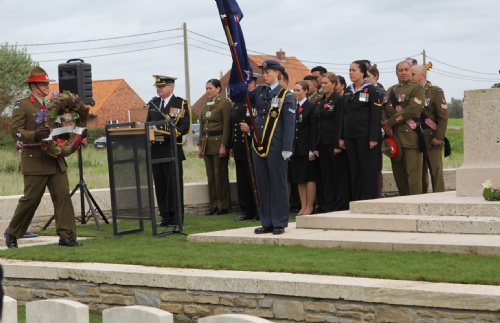
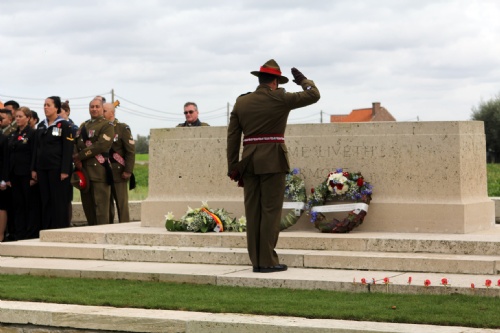
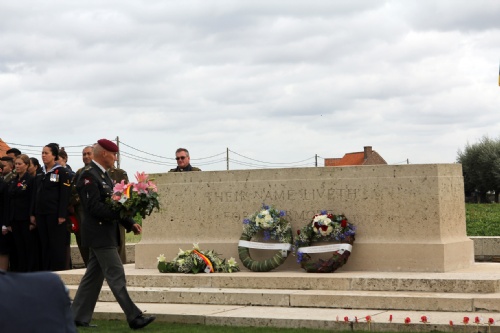
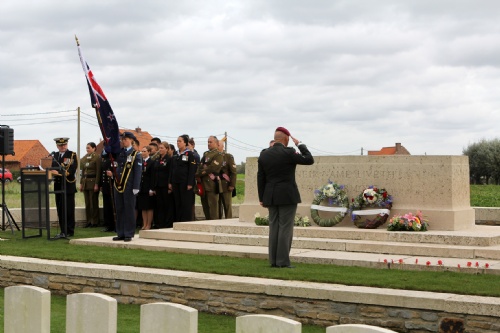
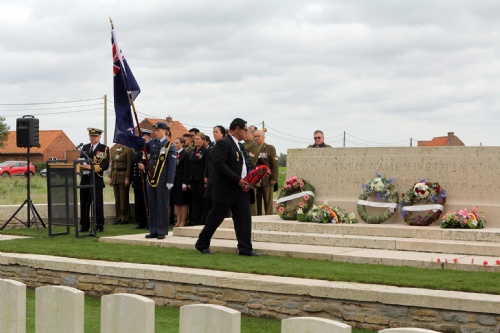
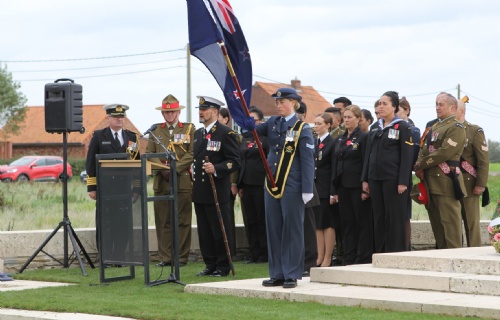
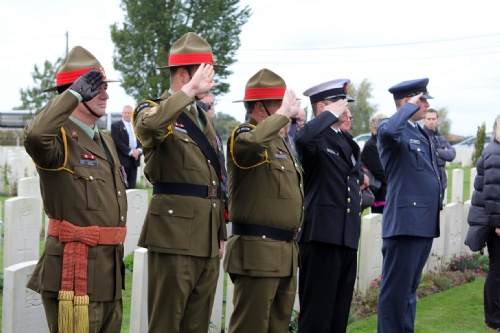
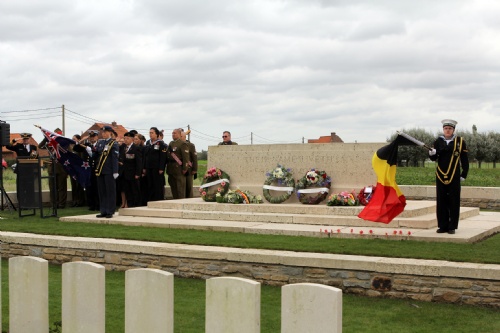
Last Post
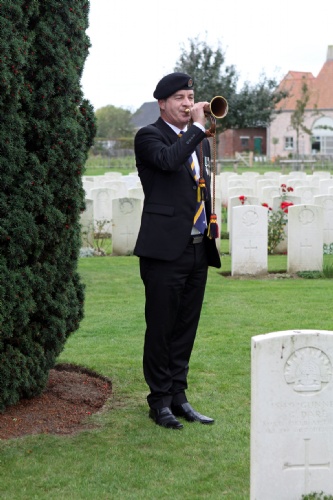
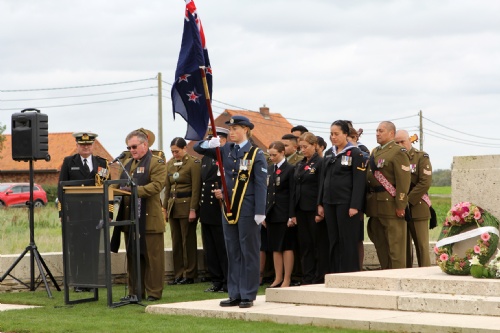
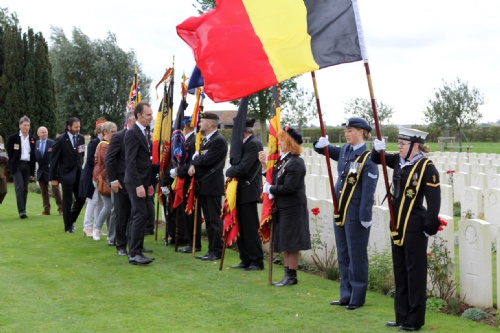
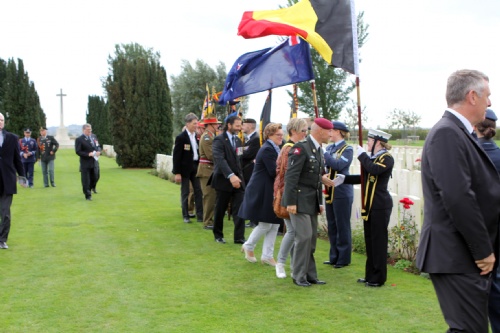
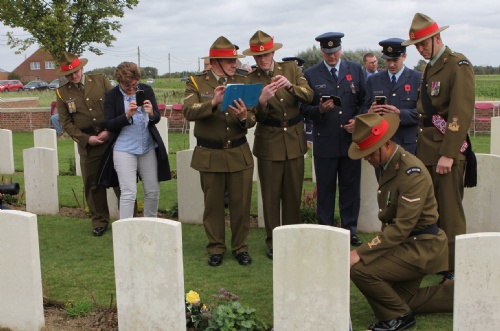
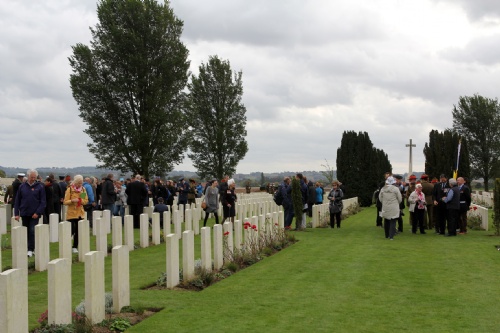
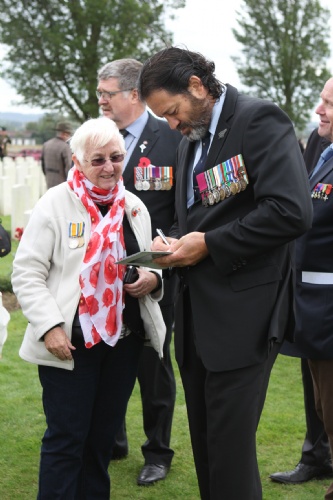
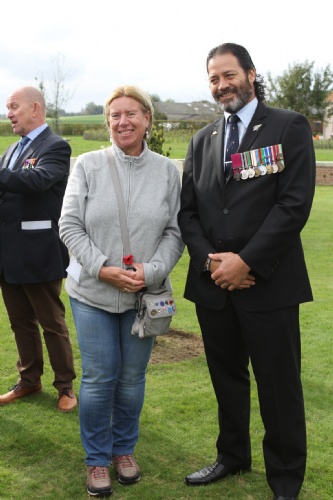
Page made by Willy Roets.